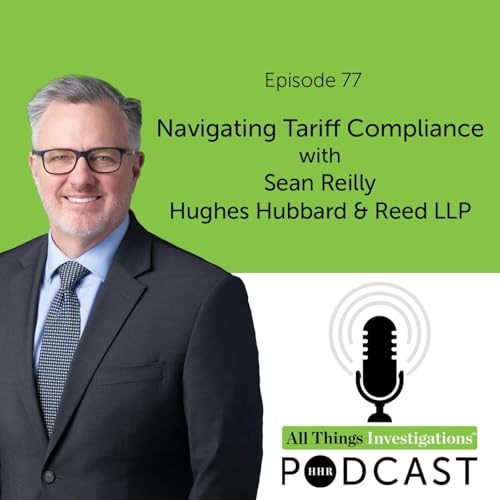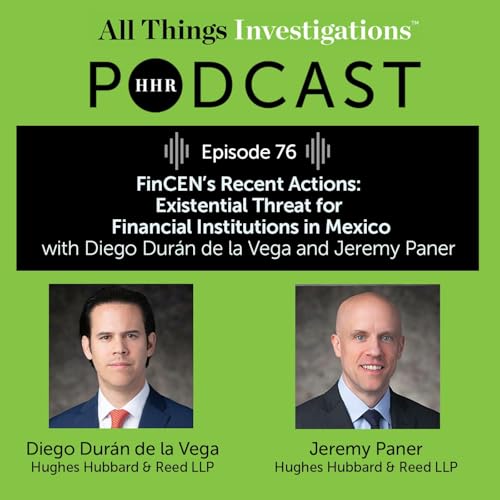Welcome to the Hughes Hubbard Anti-Corruption & Internal Investigations Practice Group’s podcast, All Things Investigation. In this podcast, host Tom Fox is joined by HHR partner Mike Huneke and BRG Director Brent Carlson to discuss secondary tariffs. Mike Huneke and Brent Carlson are leading experts in trade compliance, with a particular focus on the intricacies and impacts of tariffs and secondary tariffs within the global economic landscape. Huneke emphasizes the existential threats tariffs pose to businesses, stressing the importance of understanding their effects on countries with significant economic ties to Russia, such as China, and advising companies to reassess trade relationships with nations like China, Brazil, Russia, and Iran. Carlson emphasizes the need for trade compliance officers to adapt to the rapidly evolving geopolitical landscape, advising companies to assess their suppliers and consider potential indirect transactions through transshipment countries to navigate imposed tariffs effectively. Both experts emphasize the importance of businesses adopting a dynamic, risk-based approach to compliance, anticipating challenges, and making informed decisions to mitigate financial impacts and maintain shareholder value amid shifting trade patterns and geopolitical tensions. Key highlights: Geopolitical Impact of Secondary Tariffs Global Trade Dynamics Amid Geopolitical Shifts Trade Compliance Risks: False Claims & Tariff Evasion Resilient Supply Chain Strategy Amid Global Trade Dynamics Negotiating Tactics in Geopolitical Tariff Strategy Resources: Mike Huneke Hughes Hubbard & Reed Website Brent Carlson BRG Website
続きを読む
一部表示
 21 分
21 分 29 分
29 分 2025/09/2923 分
2025/09/2923 分 31 分
31 分 24 分
24 分 23 分
23 分 19 分
19 分 32 分
32 分
